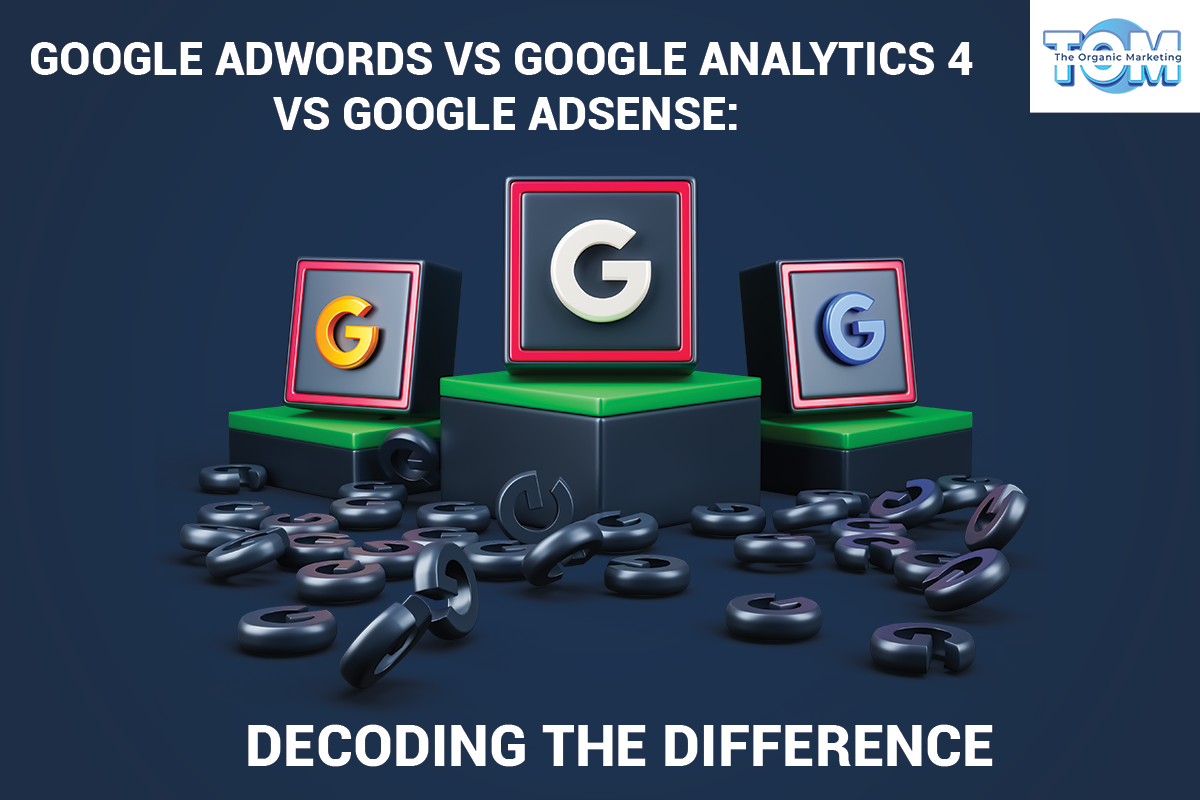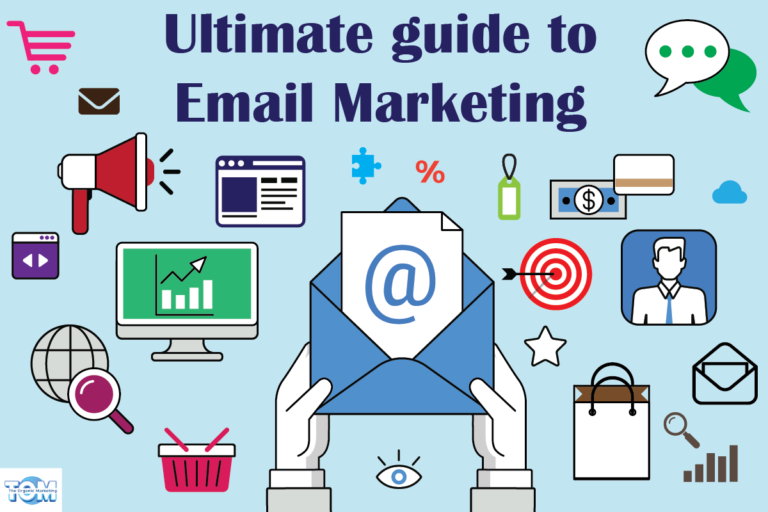Google AdWords vs. Google Analytics 4 vs. Google AdSense: Decoding the Differences
The world of digital marketing has become increasingly complicated, and Google has become an integral part of every business’s success. Among the numerous tools Google offers, three prominent ones stand out: Google AdWords, Google Analytics 4, and Google AdSense. These powerful tools play distinctive roles in helping businesses achieve their online marketing goals.
What is Google AdWords?
Google AdWords, a powerful advertising platform, revolutionized online marketing by effectively promoting businesses via paid advertising. It allows advertisers to create and manage targeted ads on Google search engine results pages (SERPs) and various partner websites within the Google Display Network. The main objective of AdWords is to drive relevant website traffic and increase conversions.
With AdWords, businesses can harness the power of keywords, ad groups, and campaigns to create highly targeted ads. Advertisers bid on keywords relevant to their products or services and pay only when users click on their ads, utilizing the cost-per-click (CPC) model. AdWords also offers options for ad extensions, ad scheduling, and various targeting settings to optimize campaigns and maximize results. There are many options available with Google ads, including video advertisements on YouTube, installation of mobile applications, & many others
What is Google Analytics 4 and its importance?
While Google AdWords focuses on advertising, Google Analytics 4 is a comprehensive web analytics tool that provides valuable insights into website performance and user behavior. It enables businesses to track and analyze website traffic, visitor demographics, user engagement, conversions, and more.
Google Analytics 4 empowers marketers with essential data to make informed decisions about their online strategies. By setting up tracking codes on web pages, businesses can monitor user interactions, track marketing campaigns, measure conversions, and identify the most effective traffic sources. The tool offers customizable reports, real-time data monitoring, and advanced segmentation features that aid in understanding user journeys and optimizing marketing efforts.
Google AdSense
While AdWords helps businesses advertise and Analytics provides insights, Google AdSense caters to website owners, offering a way to monetize their online content. Website owners can earn revenue from clicks or impressions by using the AdSense program.
Website owners can apply for AdSense and, once approved, generate an ad code to be placed on their websites. AdSense uses contextual targeting to display ads that match the web page’s content, ensuring relevant advertisements for the visitors. The program offers a variety of ad formats, including text, display, and video ads, which can be customized to fit the website’s design.
Comparing and Contrasting the Three Distinct Tools:
| Feature | Google AdWords | Google Analytics 4 | Google Adsense |
| Purpose | Paid Advertising Platform | Web Analytics Tool | Monetization program |
| Target Audience | Advertisers | Marketers and Website Owners | Website Owners |
| Main Function | Create and Manage Ad Campaigns | Track Website Performance and User Behaviour | Display Relevant Ads and Generate Revenue |
| Advertising Type | Text ads, Display ads, App ads | N/A | Text ads, Display ads, Video ads |
| Targeting Options | Keyword-based, location-based, demographic-based, interest-based | N/A | Contextual targeting based on webpage content |
| Cost Structure | Pay-per-click (PPC), Cost-per-view (CPV), Cost-per-installation (CPI) | N/A | Earn revenue from clicks or impressions |
| Conversion Tracking | Yes | Yes | N/A |
| Data Analysis | Limited insights into campaign performance | Comprehensive insights into website traffic, conversions, user behaviour | Limited insights into ad performance |
| Integration | Can be linked with Google Analytics 4 for data sharing | Can be linked with Google Adwords for campaign data | N/A |
How to Use Google AdWords, Google Analytics 4, and AdSense for an e-commerce business?
Imagine a small e-commerce business selling handmade jewelry. The business can utilize Google AdWords to create targeted ad campaigns, bidding on keywords like “handmade jewelry” or “unique accessories.” By driving traffic to their website, they increase the chances of generating sales. Google Analytics 4 helps businesses understand customer behavior, such as popular product pages and conversion rates. This data allows them to optimize their website, identify marketing opportunities, and track the success of their ad campaigns. Additionally, the business can leverage Google AdSense to display relevant ads on their blog or informational pages, earning additional revenue while providing value to their visitors. The business can effectively advertise, analyze performance, and monetize its online presence by utilizing all three tools.
Conclusion:
Google AdWords, Google Analytics 4, and AdSense are powerful tools that play distinct roles in digital marketing. AdWords drives targeted traffic through paid advertising, Analytics provides crucial insights into user behavior, and AdSense enables website owners to monetize their content. Understanding the differences and utilizing these tools in tandem can empower businesses to optimize their online marketing strategies. The Organic Marketing is your online partner for business enhancement. Contact Us Today.






